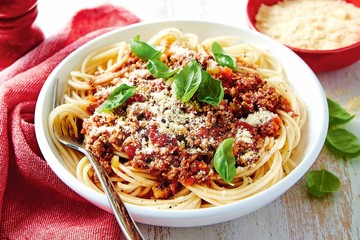Local Colour: A reflection on family, history, and heritageBy Mike Clifford

I’m currently reading “My Family and Other Disasters” by Guardian columnist, Lucy Mangan, which, as the title suggests, is a collection of vignettes of family life, guaranteed to raise a smile as the reader resonates with the foibles in Lucy’s family and, no doubt, draws parallels with their own upbringing. Every family is unique, with its own customs, characters and traditions, many of which aren’t evident until youngsters leave the nest and find that not everyone does things in quite the same way their parents do.
My older son is discovering this truth for himself as he embarks on his undergraduate studies. His latest revelation is that most people shorten “Spaghetti Bolognese” to “Spag Bol” whereas his cultural heritage tends to favour the distinctly less appetising “Spag Bog.” Naturally, he blames my cooking for this quaint abbreviation, although in my defence, I remind him that in his younger days, he would describe vanished objects as having "misappeared." To his credit, he has worked out for himself that his father’s description of coffee poured from a French Press as “cafeteria coffee” (rather than cafetiere coffee) is distinctly local. I’m not sure exactly what I’ve inherited from my parents, particularly in the academic field. One of my favourite memories of them was at my graduation ceremony when they met my supervisor. As my supervisor congratulated them on my achievements, my parents refused to take any credit, to which my supervisor replied, “Well he must have got it from somewhere.” The innocent looks on my parents’ faces as they turned to each other will stay with me for ever. I haven’t made much effort to trace my family tree, but with my good Irish surname, I’d like to think that there’s some Celtic blood coursing through my veins, mixed together with a dose of Cockney spirit (my mother was born within the sound of Bow Bells). Spiritually, I’ve found my home, rule and rhythm, in the new monasticism of the Northumbria Community and enjoy reading about the lives of the Celtic saints. As such, I visited the latest exhibition at the University of Nottingham: “The Vikings” with a sense of foreboding. Viking raiders wiped out Christian monasteries in the North of England in the 8th Century, stealing treasure, burning buildings and murdering monks, changing the religious direction of England for ever. Despite this brutal behaviour, in recent times there seem to have been attempts to portray Vikings as quite civilised – I’ve also seen people dressed as Vikings at community events, which I’ve found very unsettling. A previous exhibition at the British Museum presented Vikings as poets who wore leather shoes and even combed their hair. The exhibition was very balanced, showing everyday items such as shoes, pots and combs alongside looted monastic artefacts that had been turned into drinking vessels. And there was some reflection on depictions of the Vikings in modern culture, the media and neo-Nazi appropriation of Viking symbols; (runes and other ancient Viking iconography have been associated with Nazism by white supremacist groups). There’s been a bit of a backlash to try to combat the far-right’s hold over Viking heritage, with a group in Sweden campaigning to halt the neo-Nazi appropriation of Viking symbols, founding “Vikingar Mot Rasism” (Vikings Against Racism). J. Darensburg writes that “Norse mythology does not in any way espouse or encourage Nazi ideology,” which may contain a grain of truth, but the Vikings still send a shudder down my Celtic spine. But to end on a more positive note, I’ve recently become aware of Adrian Mitchell’s splendid poem "This Be the Worst", which I’ll leave you with. "This Be the Worst" by Adrian Mitchell (after hearing that some sweet innocent thought that Philip Larkin must have written: 'They tuck you up, your mum and dad') They tuck you up, your mum and dad, They read you Peter Rabbit, too. They give you all the treats they had And add some extra, just for you. They were tucked up when they were small, (Pink perfume, blue tobacco-smoke), By those whose kiss healed any fall, Whose laughter doubled any joke. Man hands on happiness to man, It deepens like a coastal shelf. So love your parents all you can And have some cheerful kids yourself. |
Mike Clifford is an Associate Professor in the Faculty of Engineering at the University of Nottingham. His research interests are in combustion, biomass briquetting, cookstove design and other appropriate technologies. He has published over 80 refereed conference and journal publications and has contributed chapters to books on composites processing and on appropriate and sustainable technologies.
Mike was recently honored by Universitas 21 (a global network of research universities) for his efforts regarding internationalisation in education both within and beyond the engineering classroom. U21 writes that "[Mike] created international experiences for students which impact positively on communities with a particular focus on Africa, but also across the globe, including Cambodia, India, Malaysia and Tajikistan." Mike has also been honored by the Higher Education Academy's Engineering Subject Centre for his innovative teaching methods involving costume, drama, poetry and storytelling. |



